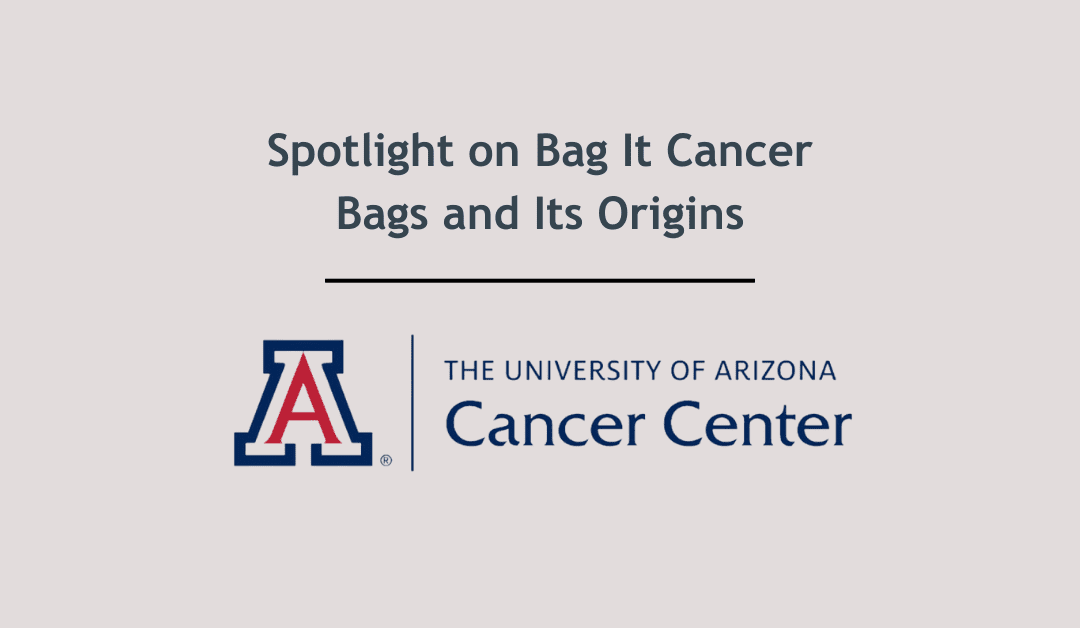
Bag It Bags Are A Cancer Resource Care Package For A Friend
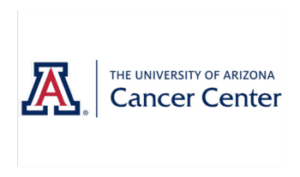 Recently the Cancer Care Center at the University of Arizona put the spotlight on Bag It Cancer Bags and talked to Executive Director, Mindy Griffith.
Recently the Cancer Care Center at the University of Arizona put the spotlight on Bag It Cancer Bags and talked to Executive Director, Mindy Griffith.

 Recently the Cancer Care Center at the University of Arizona put the spotlight on Bag It Cancer Bags and talked to Executive Director, Mindy Griffith.
Recently the Cancer Care Center at the University of Arizona put the spotlight on Bag It Cancer Bags and talked to Executive Director, Mindy Griffith.
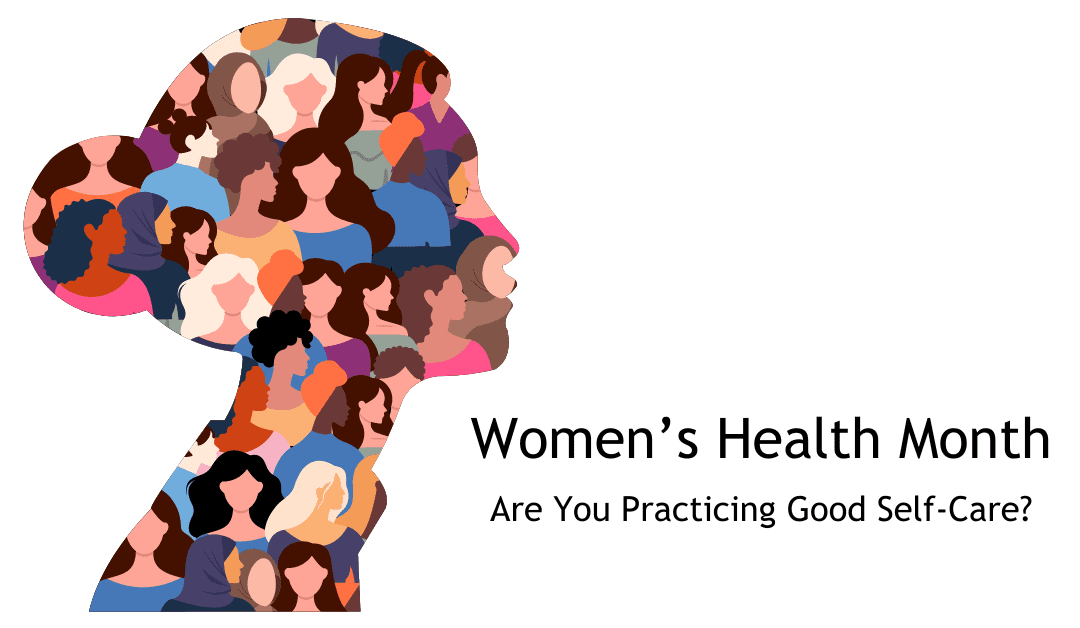
May marks Women’s Health Month, a time to raise awareness about the unique health needs of women. The demands of work and family, among other barriers, can greatly affect many women’s abilities to take care of their own health. This month’s spotlight on women serves as a gentle reminder for them to prioritize their own physical, mental, and emotional well-being.
Consider the “whole” you, with these practical tips: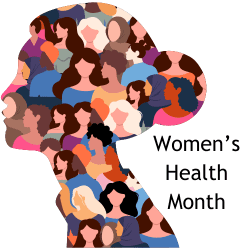
Remember to “mind your mind” by tending to your mental health just as you would care for your physical health.
Research shows that maintaining a healthy lifestyle can help to lower your risk of many different health conditions, including cancer. Bag It Cancer recognizes the importance of having trustworthy resources specifically for women’s cancers. That’s why we collaborated with national women’s cancer nonprofits to create two Bag It Bags for metastatic breast and uterine cancers. Each bag has introductory information about these specific cancer types and the supportive resources offered by our partners. Order a Bag for yourself or a loved one.
Know Your Rights: Reproductive Health Care from the Office on Women’s Health Women’s
Women’ Health from the Centers for Disease Control and Prevention (CDC)
National Institutes of Health (NIH) – Office of Research on Women’s Health
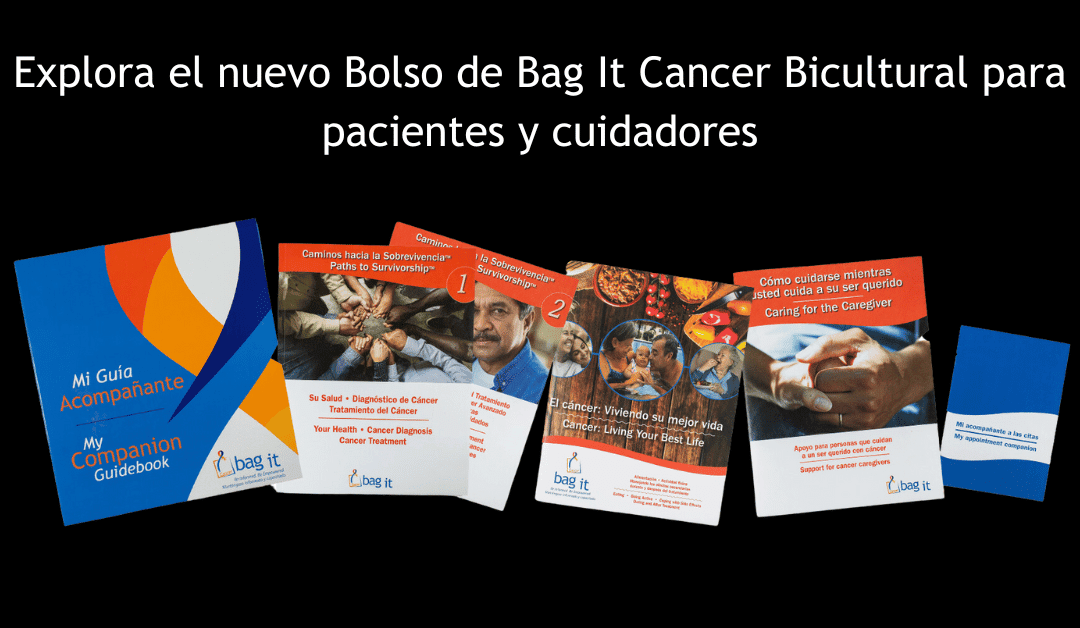
Diseñado específicamente para la comunidad Latina y sus familias que enfrentan cáncer, este Bolso es el resultado de dos décadas de experiencia y colaboración para mejorar el contenido del Bolso Bag It original en español.
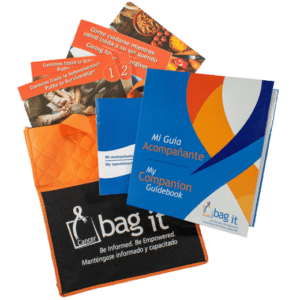 Reconociendo la profunda influencia de las creencias y los valores culturales durante el trayecto del cáncer, trabajamos estrechamente con miembros de la comunidad Latina que han tenido su propia experiencia con el cáncer: los sobrevivientes, los cuidadores, los proveedores de atención médica y otras personas que atienden a personas con cáncer. ¿El resultado? Un recurso único disponible tanto en español como en inglés, diseñado para cumplir con las necesidades de esta comunidad.
Reconociendo la profunda influencia de las creencias y los valores culturales durante el trayecto del cáncer, trabajamos estrechamente con miembros de la comunidad Latina que han tenido su propia experiencia con el cáncer: los sobrevivientes, los cuidadores, los proveedores de atención médica y otras personas que atienden a personas con cáncer. ¿El resultado? Un recurso único disponible tanto en español como en inglés, diseñado para cumplir con las necesidades de esta comunidad.
El Bolso Bicultural en Español le da prioridad a la participación familiar, reconociendo el importante papel que desempeñan las familias en las decisiones de tratamiento y cuidado. También se incluyen las necesidades de los niños, con orientación específica sobre cómo apoyarlos a través de una comunicación y comprensión apropiadas para su edad. Profundiza en cómo un diagnóstico de cáncer impacta la dinámica familiar, ofreciendo apoyo tanto a los pacientes como a quienes los rodean.
El Bolso Bag It sobresalta la importancia de mantener su atención médica preventiva y sus exámenes de detección del cáncer con regularidad. Analiza conceptos erróneos comunes sobre el cáncer, y al mismo tiempo proporciona información objetiva y confiable sobre los fundamentos del cáncer con el propósito de empoderar a las personas mientras navegan las aguas de su propia experiencia con el cáncer.
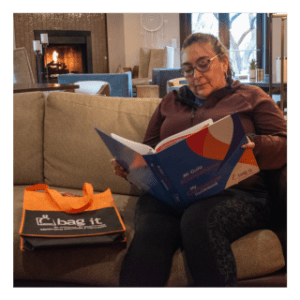 La comunicación efectiva es clave, por lo que el Bolso ofrece consejos y estrategias prácticas para fomentar el diálogo entre familiares y profesionales de la salud, incluida la búsqueda de apoyo de parte de trabajadores sociales, asesores espirituales y otras personas a medida que los individuos y quienes los rodean hacen frente a la experiencia del cáncer desde su punto de diagnóstico hasta el final en cada fase de la sobrevivencia. Esto incluye la importancia de utilizar intérpretes médicos, cuando corresponda, para garantizar que las personas sean escuchadas y comprendan la información que se les comunique.
La comunicación efectiva es clave, por lo que el Bolso ofrece consejos y estrategias prácticas para fomentar el diálogo entre familiares y profesionales de la salud, incluida la búsqueda de apoyo de parte de trabajadores sociales, asesores espirituales y otras personas a medida que los individuos y quienes los rodean hacen frente a la experiencia del cáncer desde su punto de diagnóstico hasta el final en cada fase de la sobrevivencia. Esto incluye la importancia de utilizar intérpretes médicos, cuando corresponda, para garantizar que las personas sean escuchadas y comprendan la información que se les comunique.
El Bolso de Bag It Cancer Bicultural en español es un recurso integral lleno de contenido y herramientas valiosos para empoderar a las personas y familias que enfrentan el cáncer. Proporcionar herramientas de organización e información confiable ayuda a que los pacientes obtengan una mayor sensación de control en su trayecto. La participación proactiva en su atención permite una mejor calidad de vida y resultados de salud.
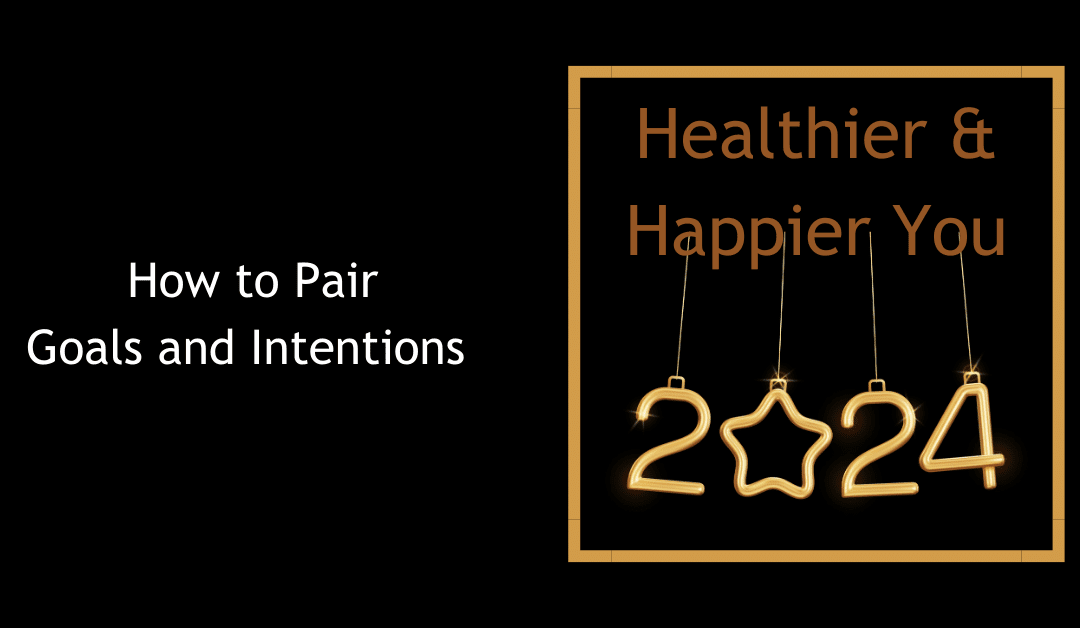
As we start the new year, let’s not just think about resolutions as a list. Identifying both goals and intentions will make for a happier and healthier you.
Goals are specific targets, such as finishing a fitness challenge or learning something new. They give you a plan and a good feeling when you achieve them.
Intentions are more about how you want to live your life. It’s like deciding to be positive, enjoy each day, or take care of yourself.
Paired, they give you the why and the how for living a more intentional life.
Goals: Think about what you want to achieve, like getting healthier, doing well at work, or spending more time with loved ones. Make sure your goals are doable and break them into smaller steps.
Intentions: Consider how you want to approach the year. Maybe focus on staying cheerful, being present in daily activities, or finding balance in your life.
For someone dealing with cancer, goals might be about finishing treatment, managing symptoms or learning about their cancer. Intentions could include prioritizing self-care and doing things that make them happy.
In cancer support, things like Bag It Cancer can help. The Bag It Cancer Bag gives tools and information for goals, and it also shows support and helps with feelings—a bit like a friendly companion.
Balancing goals and intentions is like having a plan and a positive mindset, making life better overall. It’s a great way to start the new year with a focus on feeling good and growing.
Read this article on self-awareness and setting intentions from Psychology Today.
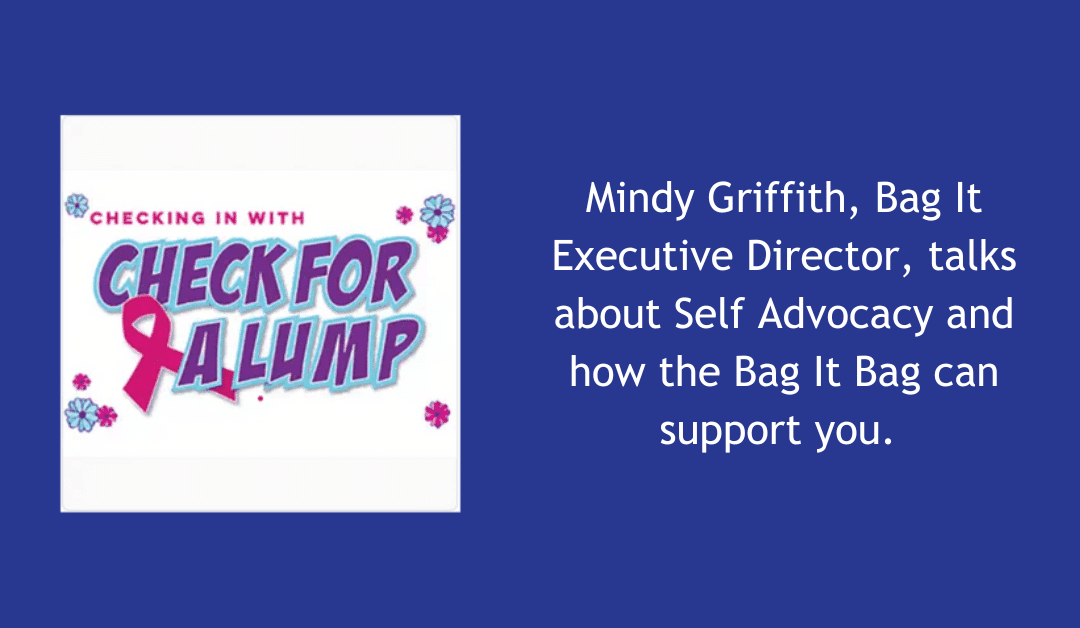
Recent Comments